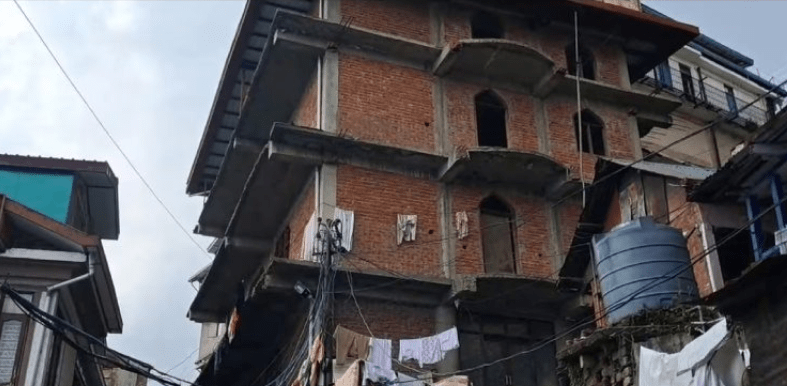3 upper floors at Sanjauli mosque declared illegal by Shimla MC court, need to be demolished

SHIMLA: In a landmark ruling, the Municipal Corporation (MC) Commissioner Court of Shimla has ordered the demolition of the illegal second, third and fourth floors of the Sanjauli mosque that has been at the centre of a controversy for the past some time.
The decision comes in response to an application filed by the mosque committee, which had admitted to illegal nature of the construction and agreed to demolish the three upper floors on its own, if allowed by the MC Court.
The court has directed that the demolition process be completed within a strict timeframe of two months. Failure to comply with the court’s orders could result in further legal consequences for those responsible for the unauthorised construction, the court said.
The next hearing on the case has been scheduled for December 21, 2024, where the court will review the progress of the demolition and any additional developments in the case.
Also Read: https://thenewzradar.com/shimla-mc-court-orders-demolition-of-3-illegal-floors-of-sanjauli-mosque/
The Sanjauli mosque issue has been a subject of communal flare-up, with local residents raising concerns about the illegal construction.
The ruling came after hearing arguments from all sides, which were heard twice during the day. The court, after a detailed review, found that the three upper floors of the mosque were constructed without proper authorisation and must be demolished. The remaining sections of the mosque will be reviewed during a follow-up hearing scheduled for December 21. The court spent nearly two and a half hours deliberating before delivering its decision, signalling a major step forward in this long-pending case.
This was the 46th hearing in the contentious case, which has pitted the state against the Waqf Board. The case was first brought to court over 15 years ago, and despite numerous notices, the illegal construction persisted.
During the Saturday session, the court heard arguments twice—first in the morning and again in the afternoon. Local residents petitioned the court to be made a party to the case, leading to a heated exchange of arguments. The application, however, was turned down.
According to court documents, the Shimla Municipal Corporation presented its status report, which pointed out numerous violations. Local residents argued that the Waqf Board had been served 11 notices over the years, yet no action had been taken. They also contended that despite being aware of the illegal construction, the authorities had failed to cut electricity and water connections of the shrine.




